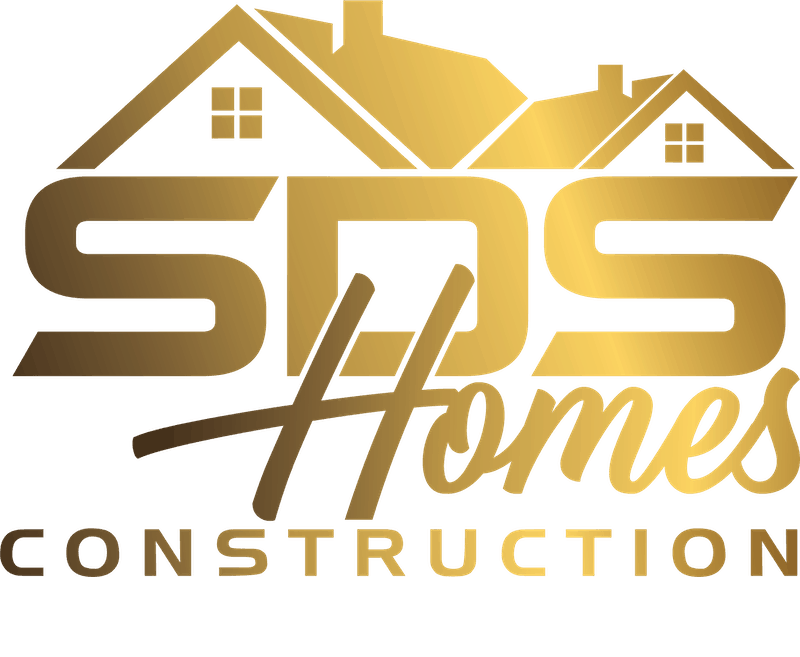A Step-by-Step Guide to the Home Building Process
Here’s what to expect during the major phases of construction.
Building your new home is exciting, especially when you understand how the process works.
1. Prepare the Construction Site and Pour Foundation
- Apply for and Acquire Permits
- Construction Crew Levels Site
- Puts Up Wooden Forms for the Temporary Foundation
- Footings Are Installed
2. Complete Rough Framing
- Floor System, Walls, Roof Systems Are Completed
- Sheathing Applied to Exterior Walls, Covered With Protective Wrap
The floor systems, walls, and roof systems are completed (collectively known as the shell or skeleton of the house). Plywood or oriented strand board (OSB) sheathing is applied to the exterior walls and roof and windows and exterior doors are installed. The sheathing is then covered with a protective barrier known as a house wrap; it prevents liquid water from infiltrating the structure while allowing water vapor to escape. This reduces the likelihood of mold and wood rot.
3. Complete Rough Plumbing, Electrical HVAC
The Following Are Installed:
- Pipes and Wires
- Sewer Lines and Vents
- Water Supply Lines
- Bathtubs, Shower Units
- Ductwork for HVAC System
- HVAC Vent Pipes
4. Install Insulation
Common Types of Insulation in New Homes
- Fiberglass
- Cellulose
- Foam Mineral Wool
- Concrete Blocks
- Insulation Concrete Forms
- Spray Foam
- Structural Insulated Panels
- Foam Board or RidgedFoam
5. Complete Drywall and Interior Fixtures, Start Exterior Finishes
- The drywall is Hung and Taped
- Texturing is Completed
- The primary Coat of Paint is Applied
- Exterior Finishes (Brick, Stucco, Stone) Are Installed
6. Finish Interior Trim, Install Exterior Walkways and Driveway
- Doors, Window Sills, and Decorative Trim Installed
- Cabinets, Vanities, and Fireplace Mantles Installed
- Final Coat of Paint
7. Install Hard Surface Flooring, Countertops; Complete Exterior Grading
Ceramic tile, vinyl, and wood flooring are installed as well as countertops. Exterior finish grading is completed to ensure proper drainage away from the home and prepare the yard for landscaping.
8. Finish Mechanical Trims; Install Bathroom Fixtures
Light fixtures, outlets, and switches are installed and the electrical panel is completed. HVAC equipment is installed and registers are completed. Sinks, toilets, and faucets are put in place.
9. Install Mirrors, Shower Doors; Finish Flooring, Exterior Landscaping
Mirrors, shower doors, and carpeting are installed and final cleanup takes place. Trees, shrubs, and grass are planted and other exterior landscaping is completed.
10. Final Walk-Through
Are you ready to embark on the final walkthrough of your new home with SDS Homes Construction? Get ready to be amazed! With SDS Homes, you can expect an exceptional experience that leaves no detail untouched.
As you step into your new abode, prepare to be greeted by impeccable craftsmanship. From the moment you walk through the front door, you’ll notice the flawless finishes, carefully selected materials, and superior attention to detail. SDS Homes take pride in delivering homes of the highest quality, and your final walkthrough will be a testament to their commitment.
During the walkthrough, the team from SDS Homes will be by your side, ready to address any questions or concerns. Their expertise and professionalism will guide you through each room, ensuring your complete satisfaction. From the luxurious kitchen to the serene bedrooms, every space will be meticulously inspected to meet your expectations.
And let’s not forget the exterior! SDS Homes pay equal attention to the outdoor spaces, creating landscapes that blend beauty with functionality. Step into your backyard oasis and envision the possibilities for relaxation and entertaining.
The final walkthrough with SDS Homes Construction is a momentous occasion, marking the culmination of your home-building journey. Get ready to be wowed by the exceptional craftsmanship and personalized care that SDS Homes brings to every project. Your dream home awaits!
Other Items that are Further Customizable
Some of the additional options that can be customized for your family, include the following:
Ceiling heights and details have many options ranging from recessed tray ceilings to cathedral or barrel-vaulted ceilings to the height of the arches separating rooms.
Door and window sizes are listed on plans with width first, then height. You have plenty of choices for door options, including solid core doors, French doors, the overall window panes on a door, Dutch doors, etc.
Window details are more than just width and height; they involve decisions about single- or double-hung windows, fixed/non-operable windows, tempered glass, butted glass, and so much more.
Wall details involve noting the thickness by the width of the wall for interior walls, living exterior walls, garage walls, and plumbing walls.
Flooring notes on a plan include stained concrete, carpeting, tile, wood, wood decking, vinyl tile, or exterior non-decorative concrete for the foundation or flatwork pour.
Cabinetry, built-ins, and sink types are numerous in form and function, depending on under-mount or apron front kitchen and utility sinks; built-in desks, lockers, floating shelves, closet racks; and linen cabinets, knee space under a vanity, or kitchen islands.
Electrical and plumbing notes are incredibly important. On floor plans, some electrical and plumbing notes feature the option for further discussion between you and our design team. Those noted as optional are not in the original price.
Exterior elevations are not just simply about the curb view; they are so much more. There are the trim details like shutters, wrapped trusses, and material, metal and shingle roofing, and masonry material such as brick, siding, stucco, stone, and board and batten.
INTEGRITY • SERVICE • QUALITY
We're Available for In-person, Phone and Video Appointments.
EXCELLENTBased on 45 reviews Trustindex verifies that the original source of the review is Google.
Trustindex verifies that the original source of the review is Google. Allen White2024-04-22SDS Homes took on a tile flooring project for me could not be happier with the results. Went above and beyond all trash was cleaned up after project. Would recommend for any home project you haveTrustindex verifies that the original source of the review is Google.
Allen White2024-04-22SDS Homes took on a tile flooring project for me could not be happier with the results. Went above and beyond all trash was cleaned up after project. Would recommend for any home project you haveTrustindex verifies that the original source of the review is Google. Rose work2024-03-15Sean / SDS and his team (shout to to Tom!) was great to work with. Prompt to give us a quote (his proposal was detailed), and prompt to start and finish. They didn’t cut corners and even suggested layouts that were better than ours. We are so in love with our bathroom and hope to work with them again with other projects in the future! Thank you Sean and Tom!Trustindex verifies that the original source of the review is Google.
Rose work2024-03-15Sean / SDS and his team (shout to to Tom!) was great to work with. Prompt to give us a quote (his proposal was detailed), and prompt to start and finish. They didn’t cut corners and even suggested layouts that were better than ours. We are so in love with our bathroom and hope to work with them again with other projects in the future! Thank you Sean and Tom!Trustindex verifies that the original source of the review is Google. Lori Robinson2024-01-31We can't say enough about Sean and his team at SDS. We used them to remodel our brand new tract home: expanding a closet, painting, swapping out some doors, etc. Sean and his team gave us the utmost care. We had several contractors coming and going, and BY FAR, Sean's team was the most professional, clean, efficient and friendly. I loved working with Tom and Jorge and all the guys. They even assembled a couple of consoles I received from Wayfair for my parents. Now we are getting estimates for an epic backyard from Sean. Can't wait to get going! O! And when they said they would be here at 8am they were always right on time. Thanks guys!Trustindex verifies that the original source of the review is Google.
Lori Robinson2024-01-31We can't say enough about Sean and his team at SDS. We used them to remodel our brand new tract home: expanding a closet, painting, swapping out some doors, etc. Sean and his team gave us the utmost care. We had several contractors coming and going, and BY FAR, Sean's team was the most professional, clean, efficient and friendly. I loved working with Tom and Jorge and all the guys. They even assembled a couple of consoles I received from Wayfair for my parents. Now we are getting estimates for an epic backyard from Sean. Can't wait to get going! O! And when they said they would be here at 8am they were always right on time. Thanks guys!Trustindex verifies that the original source of the review is Google. Glenn Jones2023-09-10SDS Home’s did a complete remodel of the guest bathroom at my house. The crew that worked on my project was very professional and I’m extremely happy about the end results. I also think the project cost was very fair. I’m very happy that I hired SDS Home’s for this project.Trustindex verifies that the original source of the review is Google.
Glenn Jones2023-09-10SDS Home’s did a complete remodel of the guest bathroom at my house. The crew that worked on my project was very professional and I’m extremely happy about the end results. I also think the project cost was very fair. I’m very happy that I hired SDS Home’s for this project.Trustindex verifies that the original source of the review is Google. JJ Baddon2023-08-27I am very impressed with this company. When I called, I actually got to speak to the owner directly and he answered his phone. He was very informative about permitting, plans and city ordinances. He is always willing to go above and beyond. My colleagues have used him and WOW! He is really good! You will not be disappointed! Give him a call!Trustindex verifies that the original source of the review is Google.
JJ Baddon2023-08-27I am very impressed with this company. When I called, I actually got to speak to the owner directly and he answered his phone. He was very informative about permitting, plans and city ordinances. He is always willing to go above and beyond. My colleagues have used him and WOW! He is really good! You will not be disappointed! Give him a call!Trustindex verifies that the original source of the review is Google. Gio Leonardo2023-08-26I have collaborated with Sean on a few projects and have seen first hand the level of quality SDS Homes provides. I highly recommend his services to anyone looking for top notch professional builder.Trustindex verifies that the original source of the review is Google.
Gio Leonardo2023-08-26I have collaborated with Sean on a few projects and have seen first hand the level of quality SDS Homes provides. I highly recommend his services to anyone looking for top notch professional builder.Trustindex verifies that the original source of the review is Google. ERIN QUINN2023-08-04I love SDS home construction. They always answer the phone. The owner Sean Coy is so amazing at what he does. I have a couple projects we’re working together. Sean is the real deal! My go to for sure!! Give them a callTrustindex verifies that the original source of the review is Google.
ERIN QUINN2023-08-04I love SDS home construction. They always answer the phone. The owner Sean Coy is so amazing at what he does. I have a couple projects we’re working together. Sean is the real deal! My go to for sure!! Give them a callTrustindex verifies that the original source of the review is Google. Emilio2023-08-02The best work in the valley, hands down! Would 100000% recommend
Emilio2023-08-02The best work in the valley, hands down! Would 100000% recommend
© 2023 SDS HOMES, LLC. All Rights Reserved. Website Designed & Optimized By Prime Media Consulting LLC | Sitemap



